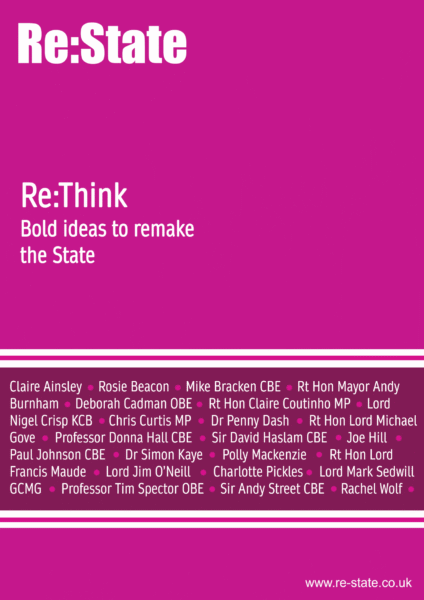FACT: Polling: U.S. public is against Trump tariffs by about 60%-36%.
THE NUMBERS: Negative/positive* views of Trump administration tariffs in recent polls –
|
Negative |
Positive |
| CNN/SRS (April 17-24) |
55 |
28 |
| New York Times/Siena (April 21-24) |
55 |
40 |
| NPR/Marist (April 21-23) |
58 |
34 |
| Washington Post/ABC News (April 18-22) |
64 |
34 |
| Fox News (April 18-21) |
58 |
33 |
| NBC News (April 11-20) |
61 |
39 |
| Pew Center (April 7-13) |
59 |
39 |
| Economist/YouGov (May 9-12) |
53 |
30 |
* Topline averages across all respondents. Polling questions differ slightly: Pew, Fox, NBC, NPR/Marist, and Washington Post/ABC ask whether respondents “approve” or “disapprove” of Mr. Trump’s handling of tariffs. CNN asks whether respondents view the tariff increases as “good policy” or “bad policy,” NYT/Siena whether respondents “support” or “oppose” the tariff increases, and Economist/YouGov about whether tariffs will hurt or help the U.S. economy.
WHAT THEY MEAN:
The Tariff Act of 1930, nicknamed “Smoot-Hawley” for the Congressional authors Reed Smoot and Willis Hawley, passed in June, during the second year of the Herbert Hoover presidency. The oldest living American — Pennsylvanian Naomi Whitehead, planning for her 115th birthday this fall — was then nineteen. A few thousand more Americans aged 105 years and above join her with personal memories of the event. No one else remembers a general U.S. tariff increase — so for the other 337 million Americans, the experience is new.
Ms. Whitehead’s “greatest generation” concluded in the early 1930s that tariff increases had been a bad idea, and their decision guided policy for the next 80 years. What are the other 337 million 21st-century Americans thinking now, as they monitor administration tariff decrees and revisions, assess its various slogans — “new golden age,” “Production Society,” “Liberation Day,” “two dolls are enough for a girl,” “WalMart should eat the tariffs” — and look for local price and employment impacts? A stream of major media April polls provides an interim snapshot as their opinions form:
The polls — CNN/SSRS, Fox News, Washington Post/ABC News, New York Times/Siena, Pew Center, NBC News, NPR/Marist, Economist/YouGov — suggest three areas of broad consensus: high awareness of the tariff increases; an overall negative view of them; and alarm about the cost of living. The “crosstabs” and “internals,” meanwhile, suggest convergence among some groups whose views on trade policy have differed in previous 21st-century polls — college and non-college, urban and rural, high- and low-income — and apparently widening opinion gaps by race and ethnicity, and by political affiliation. A summary:
Consensus 1: Wide Opposition to Tariff Increases. Averaging the polls, about 60% of the public is negative about the Trump administration’s tariff increases, and 36% is positive. Results vary a bit by poll, but not drastically: the Washington Post/ABC’s 64%-33% split is the most negative response, and the New York Times/Siena 55%-40% division least.
Consensus 2: Prices and Cost of Living are a Top Concern. The polls likewise agree on the high priority the public currently places on prices and cost of living. In CNN/SSRS, for example, 58% of respondents cite cost as the “biggest economic problem facing [my] family,” and 9% mention tariffs specifically. NBC News likewise, asking respondents which economic problem they consider most serious, finds 44% citing “inflation and the cost of living,” while “taxes and take-home pay” and “jobs and unemployment” trail behind at 10% and 7%. Economist/YouGov has an additional insight: asking whether tariffs will help or hurt the U.S. economy in general, and then the respondent’s own personal finances, they get a 53%-30% hurt/help judgment for the national economy, and a sharper 53%-16% divide on personal finance. And a different sort of survey, last Friday’s University of Michigan consumer confidence report, shows very high awareness of tariffs and their link to price increases:
“Tariffs were spontaneously mentioned by nearly three-quarters of consumers, up from almost 60% in April; uncertainty over trade policy continues to dominate consumers’ thinking about the economy.”
Narrowing Gap: Education. Earlier 21st-century polling typically found college-educated Americans more “pro-trade” and high-school diploma holders less. The gap remains in these polls, but has narrowed as non-college Americans (especially African Americans and Hispanic) shift toward a more negative view of tariffs. NPR/Marist’s college-educated Americans, for example, disapprove of Trump’s handling of tariffs by 67% to 32%, and their non-college respondents agree by a somewhat smaller 57% to 43%. In CNN/SSRS likewise, college-educated Americans consider the tariffs “bad policy” by 64-23% and non-college by a smaller 50%-30% margin.
Widening Gap: Race and Ethnicity. On the other hand, past polls rarely showed wide racial and ethnic differences on trade (though Hispanic and Asian Americans at times seemed more “pro-trade” than white and African American respondents). In April’s polls, white respondents are somewhat less negative about Trump administration tariffs than other Americans (though majorities still oppose), and African American opinion is intensely critical. Fox News, for example, has white respondents opposing 56%-35%, African Americans 71%-21%, and Hispanics 60%-31%. Washington Post/ABC likewise finds white Americans disapproving 56%-42%, African Americans 86%-13%, and Hispanics 72%-26%. New York Times/Siena is the outlier, with white respondents opposing by only a small 49%-46% plurality, while African Americans oppose by 75%-16%, Hispanics by 61%-28%, and “other” (presumably combining Native American and Asian American opinion) by 61%-31%.
Widening Gap: Political. The partisan divide in these polls, on the other hand, is much wider than before. Previous 21st-century trade polls did usually find Democrats and liberals more “positive” about trade than Republicans and conservatives — i.e., either more likely to support trade liberalizing agreements and WTO rules, or more negative about tariffs and protectionism — but the April polls report much larger gaps. Democrats oppose the Trump administration’s tariffs overwhelmingly and in some polls almost unanimously, while Republicans favor them by somewhat smaller margins. Political independents are much closer to Democrats. A four-poll comparison:
- Washington Post/ABC: Democrats “disapprove” of Mr. Trump’s tariffs by 96% to 4% and independents by 70%-28%, while Republicans “approve” by a 74% to 25% margin. Also note: 83% of Republicans “approve” of Mr. Trump’s policies overall and 15% “disapprove,” suggesting less enthusiasm for the tariffs than for other administration policies.
- NPR/Marist: Democrats disapprove 90% to 7% and independents 64%-28%; Republicans approve by 73% to 20%.
- Fox News: Democrats disapprove 88%-7%, and independents 73%-19%: Republicans approve 63%-23%.
- CNN/SRS: Democrats consider the tariffs “bad policy” by 90%-3% and independents 58%-18%; Republicans “good policy” by 64%-16%.
So: As to whether this generation of Americans will draw the same conclusions that Ms. Whitehead’s reached in the 1930s, it’s still probably too early to tell. Democrats do seem to have made up their minds, but more general opinion may not set hard until late summer or fall. But as people ponder the first general tariff increase since the Hoover era, and watch its price, employment, and other local impacts, polling does make two things pretty clear: (1) the initial judgment is quite negative, and (2) with the administration’s “new golden age,” “production society,” and “Liberation Day” rhetoric having failed, its ‘window’ to shape opinion may soon close.

FURTHER READING
PPI’s four principles for response to tariffs and economic isolationism:
- Defend the Constitution and oppose rule by decree;
- Connect tariff policy to growth, work, prices and family budgets, and living standards;
- Stand by America’s neighbors and allies;
- Offer a positive alternative.
Polling links:
Economist/YouGov (May 9-12)
CNN/SSRS (April 17-24)
New York Times/Siena (April 21-24)
NPR/Marist (April 21-23)
Washington Post/ABC News (April 18-22)
Fox News (April 18-21)
Chicago Council on Global Affairs (April 18-20)
NBC News (April 11-20)
Pew Center (April 7-13)
Some more crosstabs:
Youth v. Age: Pre-2025 trade polling typically found younger people more “pro-trade” than their elders. This hasn’t changed in April polls, though no age group supports the tariffs. NBC News has 18-29-year-olds “disapproving” by 72%-28%, and over-65s by 57%-44%. New York Times/Siena finds nearly identical splits of 71%-28% for youth and 54%-38% for age.
“Economics of place”/regions. Past trade polls typically found regional and community divisions, with Northeastern and Western Americans more “pro-trade” than Southern and Midwestern respondents. These gaps seem to have diminished but haven’t disappeared. NYT/Siena finds Western opposition to tariffs are especially strong — 62%-28% — and Northeastern respondents oppose by 55-39%, while Midwesterners oppose by a less decisive 52%-42% and Southerners 52%-44%. NPR/Marist has stronger midwestern opposition: 63%-33% negative in the west, 60%-34% in the northeast, 61%-31% in the Midwest, and 53%-37% in the south.
“Economics of place”/community type. Likewise, past polling found some divergences by community type, with urban America somewhat more “pro-trade” than rural communities. (A bit surprising as rural America is especially export-reliant.) This gap, at least for now, is much smaller than before. NPR/Marist has rural America negative by 53%-39%, urban Americans by 63%-30%, and suburbanites by 57%-33%. Fox News finds somewhat less division: in the cities, 54% think the tariffs will “hurt” the American economy, while the countryside splits 52%-34%; suburbanites are a bit more negative, at 57% “hurt” and 30% “help.”
ABOUT ED
Ed Gresser is Vice President and Director for Trade and Global Markets at PPI.
Ed returns to PPI after working for the think tank from 2001-2011. He most recently served as the Assistant U.S. Trade Representative for Trade Policy and Economics at the Office of the United States Trade Representative (USTR). In this position, he led USTR’s economic research unit from 2015-2021, and chaired the 21-agency Trade Policy Staff Committee.
Ed began his career on Capitol Hill before serving USTR as Policy Advisor to USTR Charlene Barshefsky from 1998 to 2001. He then led PPI’s Trade and Global Markets Project from 2001 to 2011. After PPI, he co-founded and directed the independent think tank ProgressiveEconomy until rejoining USTR in 2015. In 2013, the Washington International Trade Association presented him with its Lighthouse Award, awarded annually to an individual or group for significant contributions to trade policy.
Ed is the author of Freedom from Want: American Liberalism and the Global Economy (2007). He has published in a variety of journals and newspapers, and his research has been cited by leading academics and international organizations including the WTO, World Bank, and International Monetary Fund. He is a graduate of Stanford University and holds a Master’s Degree in International Affairs from Columbia Universities and a certificate from the Averell Harriman Institute for Advanced Study of the Soviet Union.





